WHAT IS A RECORD SUSPENSION?
A Record Suspension (formerly called a pardon) is an order that keeps a person’s criminal record (of convictions) separate and apart from other criminal records. This means a person’s convictions will not be revealed on criminal record checks. It does not erase a criminal record. Record suspensions allow people who have made positive life changes to be freed from many of the negative impacts of having a criminal record.
People have the right not to be discriminated against because of a criminal conviction for which they have received a record suspension. The Parole Board of Canada is responsible for granting, denying and revoking record suspensions. If a record suspension is related to a sexual offence, the file will be ‘flagged’ in the RCMP system and will still be revealed on a vulnerable sector check.
As of 2012, you are no longer eligible for a record suspension if you have been convicted of:
A Schedule 1 Offence (sexual offence involving a child) under the Criminal Records Act
More than three (3) offences prosecuted by indictment each with a prison sentence of two (2) years or more.
You can apply for a record suspension only if you meet all 3 of the following conditions. There are no exceptions.
1
You have completed your sentence, meaning you completed paying any fines, surcharges, compensation and restitution orders, completed any probation orders or conditional sentence, and served all of your sentence including parole/ statutory release;
2
You have met the required wait times: 5 years for a summary offence (or a service offence under the National Defence Act); or 10 years for an indictable offence (or a service offence under the National Defence Act for which you were fined more than $5,000, detained or imprisoned for more than 6 months).
3
You have been of ‘good conduct,’ have not been convicted of any new offences, and have no new charges or outstanding fees (including traffic tickets).
Get a Record Suspension Application Guide and Form from the Parole Board of Canada. For assistance on how to start an application visit your local John Howard Society (see contact information below) or click on the Parole Board of Canada resources below to access forms, tips and instructions on how to complete your application.

Record Suspension Services
John Howard Society
Contact your local John Howard Society for more information (see contact information above)

Record Suspension Application
Parole Board of CanadaParole Board of Canada
Helpful resources from the Parole Board of Canada, the the official and only federal agency responsible for record suspensions.

Cannabis Record Suspensions
Parole Board of CanadaParole Board of Canada
Learn about the eligibility criteria for a cannabis record suspension and how to apply for one Parole Board of Canada.
The application process is described in the Application Guide. Make sure to follow the instructions carefully. The process involves:
- Getting your criminal record from the RCMP and local police service for the city or town where you live now (your current address) AND for each city or town where you have lived during the last 5 years (if you lived in that city or town for 3 months or more)
- Being fingerprinted
- Paying an application fee ($50.00 as of 2022)
JHS RECORD SUSPENSION SERVICES ACROSS ONTARIO
Record Suspension Services Program
All of our local JHS offices offer record suspension services, however, several offices offer the Record Suspension Services Program. For contact information, look for this icon ![]() on the JHS affiliate list. The Record Suspension Services Program supports individuals applying for record suspensions in navigating the process, completing applications and ensuring access to the right information. With funding from Public Safety Canada, the Record Suspension Services Program may offer support to cover the cost of fees.
on the JHS affiliate list. The Record Suspension Services Program supports individuals applying for record suspensions in navigating the process, completing applications and ensuring access to the right information. With funding from Public Safety Canada, the Record Suspension Services Program may offer support to cover the cost of fees.
JHS BELLEVILLE
Tracey Proctor
Tel: 613.962.1544
Email: tproctor@johnhowardbelleville.ca
JHS DURHAM
Andrew Oprea
Tel: 905.579.8482
Email: Andrew.oprea@jhsd.ca
Click here for brochure
JHS HAMILTON, BURLINGTON & AREA
Tel: 905.522.4446 ext 221
Email: recordsuspension@jhshba.ca
JHS KAWARTHA LAKES & HALIBURTON
Kelsie Howell
Tel: 705.340.3159
Email: khowell@jhscklh.on.ca
Click here for brochure
JHS KINGSTON
Brendan Lorimer
Tel: 613.542.7373 (115)
Email: Brendan.lorimer@jhskd.ca
JHS LONDON
Courtney Coqu
Tel: 519.438.4168 (224)
Email: ccoqu@jhslondon.on.ca
JHS NIAGARA
Joe Saxon
Tel: 905.682.2657 (234)
Email: JSaxon@jhs-niagara.ca
JHS OTTAWA
Cookie Dietrichson
Tel: 613.789.7418 (222)
Email: rsr@jhsottawa.ca
Click here for brochure
JHS PEEL, HALTON AND DUFFERIN
Tracie McGrath-Levis
Tel: 905.864.1306 (206)
Email: tmgrath-levis@johnhowardphd.ca
JHS PETERBOROUGH
Megan Carrick
Tel: 705.743.8331
Email: mcarrick@jhsptbo.ca
Click here for brochure
JHS SARNIA
Christine LeDrew
Tel: 519.336.1020 (001)
Email: CLeDrew@johnhowardsarnia.com
JHS SAULT STE. MARIE
Jessica Caldwell
Tel: 705.759.1703
Email: jcaldwell@jhsossm.ca
Click here for brochure
JHS SIMCOE & MUSKOKA
Sydney Margarit
Tel: 705.816.0237
Email: Smargarit@jhssm.ca
JHS SUDBURY
Rolande Nkwasseu
Tel: 705.673.9576
Email: rolanden@johnhowardsudbury.ca
Click here for brochure
JHS THUNDER BAY
Marcella Martinez
Tel: 807.357.1448
Email: recordsuspension@jhstbay.on.ca
Click here for brochure
JHS TORONTO
Valentina Posada
Tel: 416.925.4386 (271)
Email: vposada@jhst.ca
JHS YORK REGION
Chandlar Chambers-Jones
Tel: 437.429.3160
Email: cchambersjones@jhsyork.ca
JHS WINDSOR-ESSEX
Jennifer Dillon
Tel: 519.252.3461
Email: info@jhswindsor.com
JHS WATERLOO-WELLINGTON
Burns MacLeod
Tel: 519.743.6071 (213)
Email: BurnsMacLeod@jhsww.ca
FREQUENTLY ASKED QUESTIONS
Certain criminal records may exclude you from travel into some countries. A Waiver is a document, issued by the country to which you would like to travel, allowing you to enter even if you do not meet the entry requirements. For example, the United States restricts entry for people who have been convicted of certain crimes. You can find a list of what these crimes are at www.state.gov
If you have a record of one of these crimes, you will need a Waiver of Inadmissibility to enter the US. Never try to travel to the US if you are excluded: you could be detained, fined, charged or incarcerated.
The waiver is issued by US Customs & Border Protection (CBP), an agency of the Department of Homeland Security, and carries a short term. You can apply by filling out Form I-192 and submitting the required documents. The list of crimes, Application Form and instructions can be found on the US Citizenship & Immigration website: www.uscis.gov and the application is submitted at a CBP Port of Entry.
The application process can take up to a year and is expensive. The costs will depend on the types of documents you need to submit, but the application itself costs $585.00 US (as of 2012).
If you have obtained a record suspension, you may still need a waiver to travel to the US. Border officials may have access to different kinds of information than Canadian police and do not recognize a Canadian Record Suspension. Even a conditional discharge for certain offences can exclude you from entry.
For more information, read the CBP website: www.state.gov, contact your nearest Port of Entry, or call the Pearson Airport CBP Centre: 905-676-2606.
A caution about private services:
You may have seen ads for companies that say they can get you a record suspension faster, easier or “guaranteed.” The truth is, it’s impossible for them to speed up or guarantee the process or outcome. The eligibility requirements and process are the same for everyone, no matter if they apply through a company or on their own — everyone gets the same consideration. You do not have to pay a private company or a lawyer to obtain a record suspension, you can go through the process yourself and only pay the document and application fees.
However, if you’re having difficulty with the process and would like some assistance, try getting information and help from:
The Parole Board of Canada
helpline (toll- free):
1-800-874-2652
Your local John Howard Society
(see list of local offices above)
Assistance is provided on a fee-for-service or sliding scale basis. Call your local offices for specific information about the services offered there.
Some reasons to pursue a Record Suspension include:
- Removing negative impacts associated with a criminal record
- Discrimination and stigma
- Employment
- Career advancement
- Immigration
- Volunteering
- Apartment rentals
- Educational opportunities
- General peace of mind
- Reflects positive life changes
No. Only sexual offences can be revealed on a Vulnerable Sector Check after receiving a Record Suspension.
No. Any convictions that appear on your RCMP record check must be included on the Record Suspension Application.

